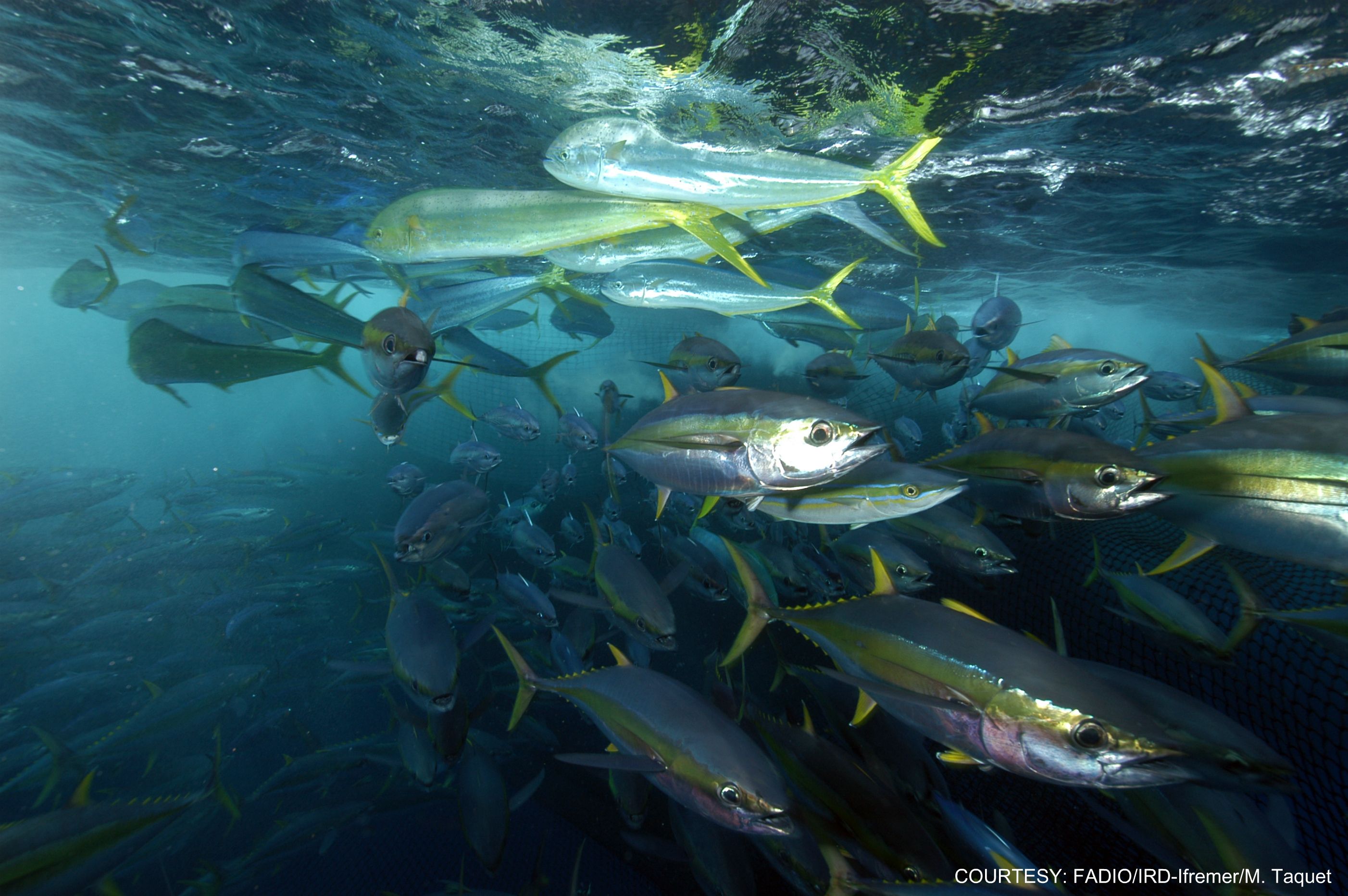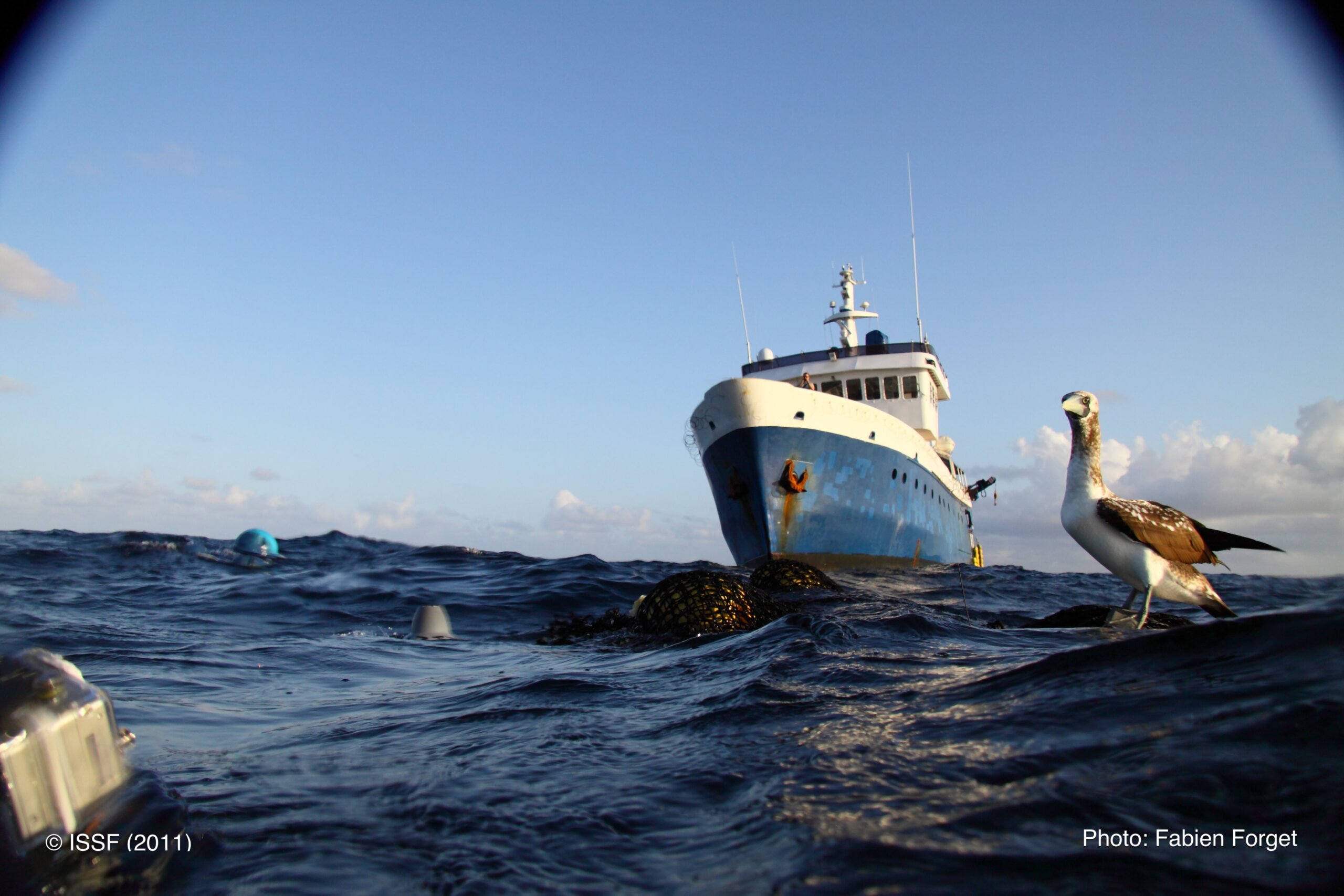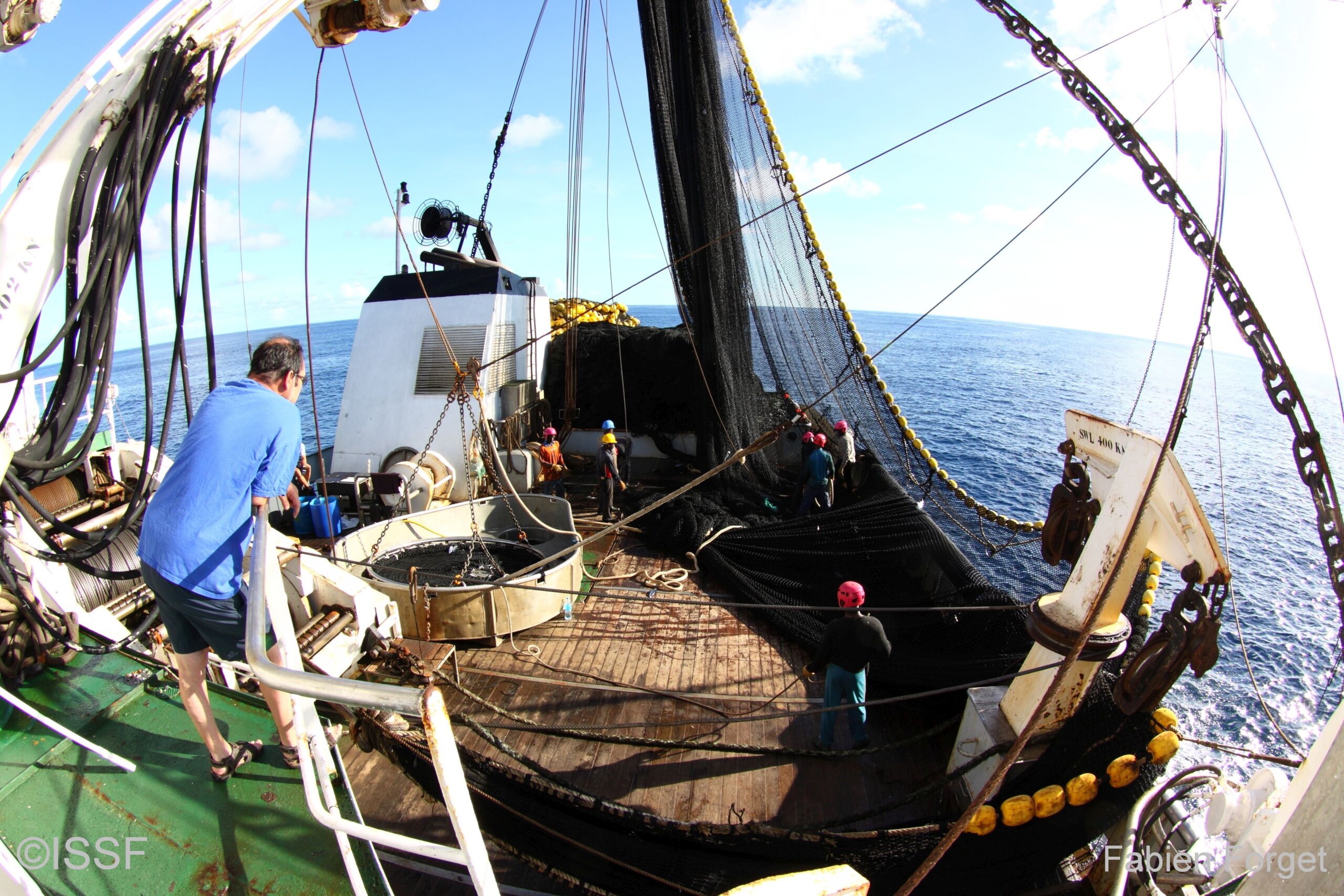
Tuna Fisheries Management in Turbulent 2020 – The Good and the Bad
Dec. 22, 2020: See an update about IATTC’s Dec. 22 emergency meeting.
This year has tested all of us, including decision-makers at the Regional Fisheries Management Organizations (RFMOs) that manage commercial tuna stocks. All tuna RFMOs were forced to hold their annual meetings virtually or by correspondence, while some important meetings were canceled altogether. Working and negotiating in a virtual environment was a big adjustment for international bodies like RFMOs, and it stymied progress in 2020.
In the face of these challenges, ISSF and its stakeholders made considered appeals to RFMOs — urging needed progress on tuna conservation, fish aggregating device (FAD) management, harvest strategies, and electronic monitoring (EM).
As I reflect on 2020, I do see some improvements in elements that maintain the conservation and management framework of global tuna stocks and their ecosystems. And that includes setting certain management work in motion for 2021. But I also see failures — missteps that could have been avoided with serious collaboration even during this unexpectedly difficult year.
Points of Progress: Tuna Conservation and Management, FADs, and Electronic Monitoring
For all four RFMOs, preserving their tuna stock management measures due to expire in 2020 was paramount. ISSF and its stakeholders promoted this as an “at minimum” outcome as soon as we knew that RFMOs would not meet in person. All RFMOs had measures that needed to be extended into 2021 to ensure the uninterrupted management of global tuna resources.
It’s worth applauding the three RFMOs that met this minimum bar:
- The Indian Ocean Tuna Commission (IOTC) extended its resolution on yellowfin stock rebuilding and agreed to hold a special meeting in March 2021 to consider a new rebuilding plan that implements the scientific advice. IOTC also implemented the harvest control rule for skipjack tuna, setting an annual catch limit for 2021-2023.
- The International Commission for the Conservation of Atlantic Tunas (ICCAT) — whose decision-making process by correspondence is still underway — is on track to extend tropical tuna and northern albacore recommendations into 2021. ICCAT is also planning a series of intersessional meetings in 2021, where catch-and-effort limits, reporting and monitoring, and total allowable catch (TAC) allocation will be discussed.
- The Western and Central Pacific Fisheries Commission (WCPFC) extended its conservation measure for tropical tunas through February 2022 and agreed on a detailed process of intersessional work in 2021 for developing a successor measure.
Regrettably, the Inter-American Tropical Tuna Commission (IATTC) did not agree to extend its existing tuna measure at its December virtual meeting, leaving its yellowfin, bigeye, and skipjack stocks unmanaged as of 1 January 2021 — a disastrous outcome for sustainable tuna fisheries in the Eastern Pacific Ocean. Fortunately, as of this writing, IATTC has scheduled an emergency meeting for December 22. ISSF continues to implore all IATTC parties to swiftly reverse this misstep.
All RFMOs took steps on FAD management and EM, ensuring these issues will be advanced in 2021 and accelerating previously sluggish work:
- The IOTC Scientific Committee recommended the creation of an ad-hoc working group on EM in 2021. And it recommended allowing “raw” FAD data — reported per IOTC’s FAD limits resolution — to be made available for scientific purposes. Lastly, the IOTC FAD Working Group was reactivated and will meet next year.
- ICCAT has scheduled intersessional meetings for 2021 to advance work on EM, observer programs, and FAD management.
- WCPFC confirmed its FAD Working Group will continue in 2021, with a focus on revising non-entangling and biodegradable FAD guidelines.
- And IATTC agreed to hold a 2021 workshop on the objectives, scope, minimum standards and structure for an EM program and scheduled an Ad Hoc Working Group meeting on FADs in 2021.
Missed Opportunities: Assessing Compliance and Harvest Strategies
Ensuring that RFMO members comply with RFMO measures is fundamental to RFMO performance. ISSF consistently advises RFMOs to strengthen their compliance assessment processes in line with best practices. Yet robust assessments of RFMO member compliance were another miss this year:
- In IOTC, data showed that the catch limits in the yellowfin tuna measure were exceeded by members, undermining the effectiveness of the already inadequate interim yellowfin tuna rebuilding plan. This compliance failing was not addressed.
- Despite weak compliance with FAD data provision requirements in IATTC — during 2020, the Commission reported receiving just 58% of the required FAD data — the IATTC compliance committee did not even meet virtually, and a planned review of FAD data reporting requirements did not happen.
Harvest strategies provide pre-agreed rules for managing fisheries resources and acting on stock status changes, and they’re essential for sustainable fisheries management. It’s noteworthy that all tuna RFMOs progressed their technical work on developing harvest strategies this year.
But it’s concerning that WCPFC once again did not hold or agree to hold a manager-scientist workshop. Such workshops in place at the other tuna RFMOs are critical in giving managers and scientists the know-how to develop robust harvest strategies.
ISSF Remains Committed to Work Collaboratively with RFMOs
In 2021, virtual meetings are likely to be the norm for at least part of the year, and RFMOs have now had many months year to learn how to operate in this challenging environment. RFMOs cannot use the virtual format of their meetings as an excuse for inaction or backsliding on critical measures.
Regardless of the meeting format, ISSF will pursue all opportunities to help guide RFMOs, member governments, industry, vessels, FIPs and NGOs on the complex issues they must navigate for sustainable global tuna stocks and their ecosystems.


